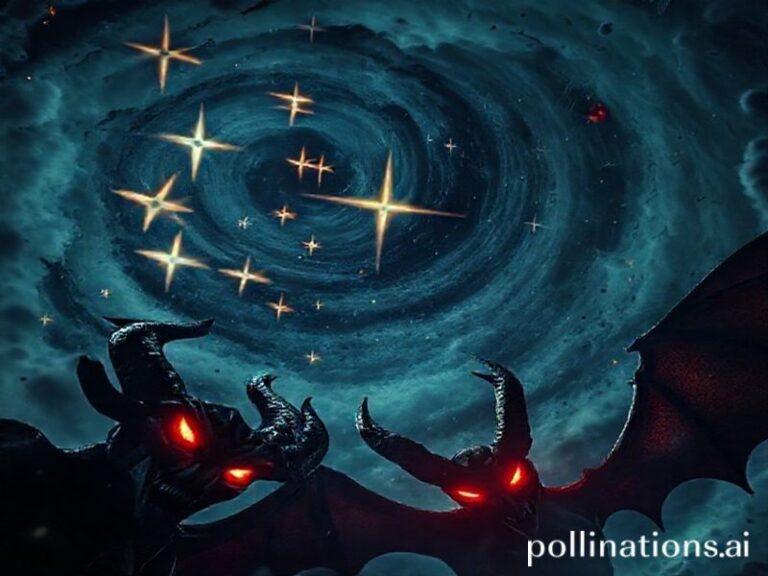Runaway Aristocracy: How the Constance Marten Case Became the World’s Favorite Gothic Soap Opera
The Curious Odyssey of Constance Marten: Aristocracy, Infanticide, and the Global Tabloid Hunger Games
By C. L. “Luca” Moreau, Senior Correspondent, Dave’s Locker
PARIS—As the Seine swells with spring rain and French pension-reform protests compete for column inches, the Anglophone press has devoted roughly the same acreage to Constance Marten that it once reserved for the fall of Kabul. One might think a minor British heiress accused of manslaughter would struggle to elbow aside nuclear saber-rattling in Ukraine or Silicon Valley bank implosions, yet here we are—proof, if any were needed, that the modern attention economy runs on pedigree plus tragedy, shaken not stirred.
For readers still pretending to work, here’s the précis: Constance Marten, 36, scion of a family whose fortune was minted in 19th-century steamships and whose current hobbies include stately-home upkeep and discreet tax avoidance, allegedly spent two years living off-grid across the U.K. and Western Europe with her partner Mark Gordon and their newborn. The infant, named Victoria, was found dead in a Brighton shed last March after a month-long, £10 million police manhunt that rivaled the search for Lord Lucan—minus the aristocratic panache. Both parents now face manslaughter charges and, more importantly, the wrath of every British tabloid editor who missed a mortgage payment during the slow-news dog days of February.
From an international vantage, the Marten saga is less a domestic crime blotter and more a parable about late-imperial entropy. Picture it: a blue-blooded woman raised on Coldstream Guard lullabies and vintage port opts for the #VanLife aesthetic—minus the sponsored Instagram posts. Instead of monetising her wanderlust, she allegedly burns through cash like a Russian oligarch at a Dubai yacht show, apparently unaware that surveillance capitalism tracks even runaway aristocrats. The whole escapade recalls a deleted subplot from “Succession” written by Dostoevsky after a three-day absinthe bender.
Global implications? First, the case exposes how Europe’s porous borders remain a playground for those with the right passport and the wrong priorities. While Ukrainian refugees queue for days at Calais, our protagonists reportedly hopscotched from Essex to Liverpool docks, then south to Spain, before doubling back like gap-year students who’ve lost their Eurail pass. Frontex drones, it seems, are no match for the gravitational pull of inherited privilege.
Second, the Marten fiasco underscores the worldwide obsession with dynastic doom. From South Korea’s chaebol scandals to America’s Kennedy-adjacent vehicular mishaps, we crave evidence that money cannot, in fact, purchase sanity. Each continent offers its own flavor: the Japanese have their “missing heiress” sagas, the Brazilians their telenovela-worthy Petrobras dynasties. Britain simply serves its dysfunction with extra eccentrics and drizzle.
Third, consider the geopolitical optics. While the U.K. lectures the Global South on governance, its own 24-hour news cycle devolves into a Gothic penny dreadful. The same Foreign Office that once administered half the planet now fields media queries about whether a viscount’s granddaughter used Tesco Clubcard points to buy nappies. The empire, it appears, retired not with a bang but with a Daily Mail sidebar of shame.
Meanwhile, in the court of public opinion, the verdict is already in: everyone’s guilty of rubbernecking. The BBC—funded by the taxpayer, lest we forget—deployed helicopters worthy of a NATO sortie to track a couple whose chief crime, at least initially, was choosing privacy over push notifications. Somewhere in Silicon Valley, a product manager updates his pitch deck: “Uber, but for posh fugitives.” Seed funding to follow.
As the trial lumbers through Old Bailey like a Dickensian marathon, observers might ponder the deeper pathology. We insist the rich are different, then act shocked when they behave as if rules are gluten—optional and vaguely distasteful. The Marten spectacle satisfies our contradictory appetites: to venerate old money and to watch it burn, preferably on livestream.
Will justice be served? Perhaps. But justice rarely trends on TikTok, whereas a tragic baby and a rebellious aristocrat hit every algorithmic sweet spot. In the end, the global takeaway is as cynical as it is succinct: if you must abscond, dear reader, at least monetise the content.







